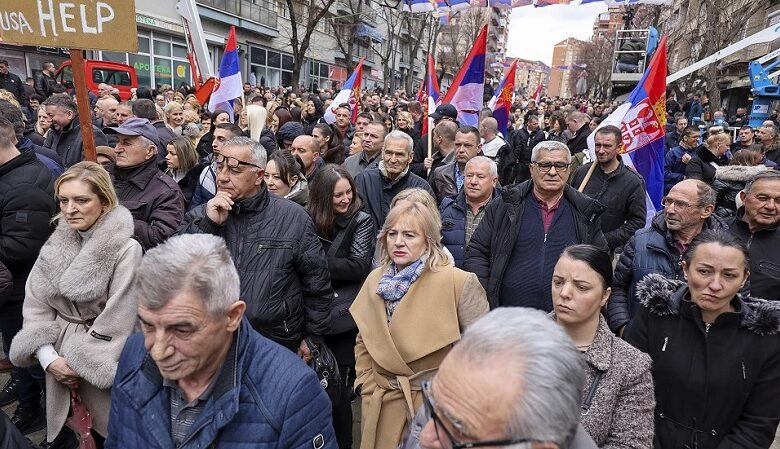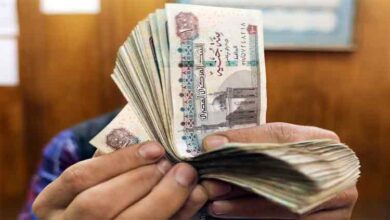Tensions Rise as Kosovo Serbs Protest Against Currency Ban

In a significant development sparking unrest, thousands of Kosovo Serbs gathered in Mitrovica on Monday to voice their discontent over Priština’s decision to exclusively adopt the Euro as the legal currency, banning the use of the Serbian dinar in their regions.
The ban has particularly affected ethnic Serbian-dominated areas, where the dinar was widely used for local transactions, including the payment of pensions and salaries in Serbian-run institutions such as schools and hospitals.
The Kosovo government’s move has led to heightened tensions between Serbia and Kosovo, escalating into a crisis that was discussed by leaders at the United Nations Security Council last week. Protesters in the divided northern Kosovo town of Mitrovica argue that the ban infringes on the rights of Kosovo Serbs and is discriminatory. They have called upon the international community to exert pressure on the Kosovo government to reverse its decision.
Kosovo’s Prime Minister, Albin Kurti, defended the currency ban, stating that it is aimed at curbing illegal money flow and does not impede Serbia from financially assisting the citizens of Kosovo’s Serb community. Kurti emphasized that the only change is the requirement for cash to flow through bank accounts and be withdrawn in euros, starting from February 1.
This latest crisis adds a new layer to the long-standing dispute between Serbia and Kosovo, which emerged from the 1999 war and subsequent NATO intervention. Serbia does not recognize Kosovo’s independence, considering it a Serbian province.
The European Union and the United States have expressed concerns over the currency ban, fearing that it could further escalate tensions in the region. The EU, actively involved in brokering negotiations between Serbia and Kosovo, has called for consultations and a delay in implementing the currency move, highlighting the delicate nature of the ongoing situation in the Balkans.



